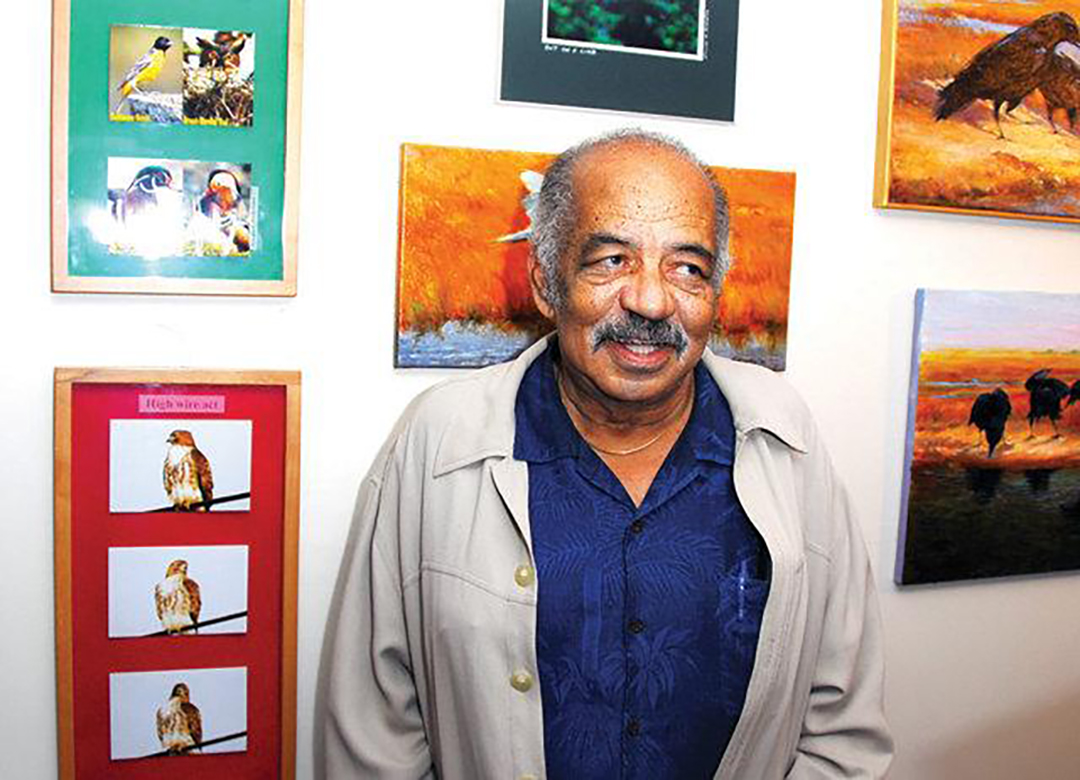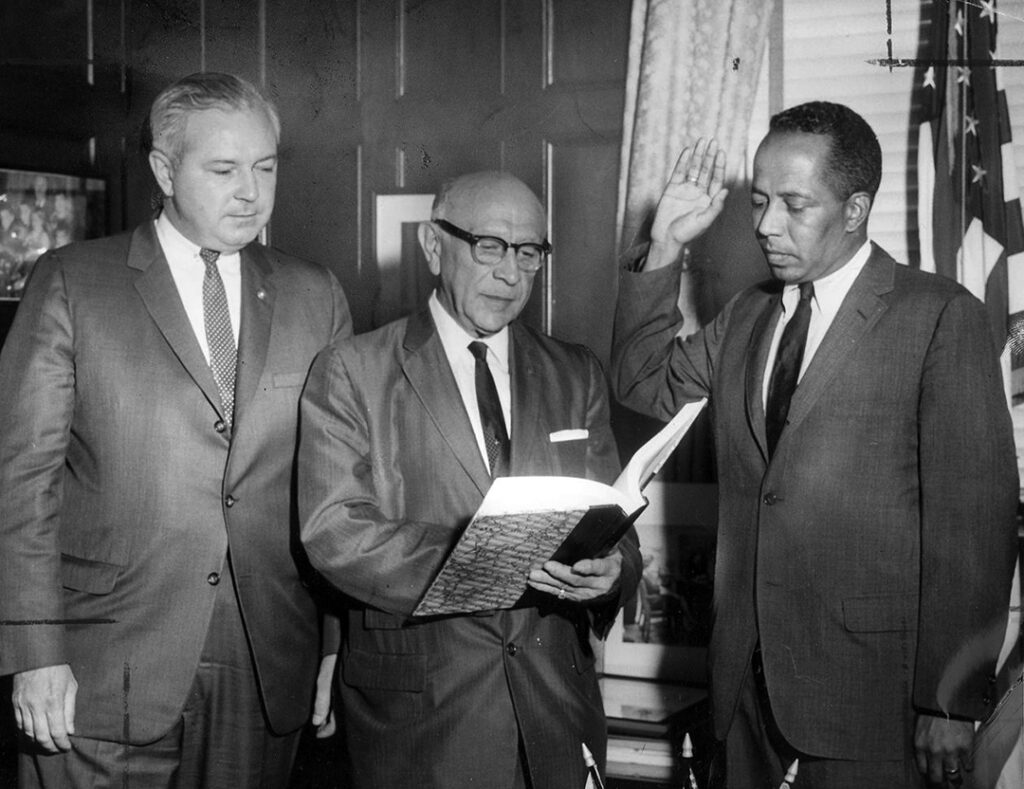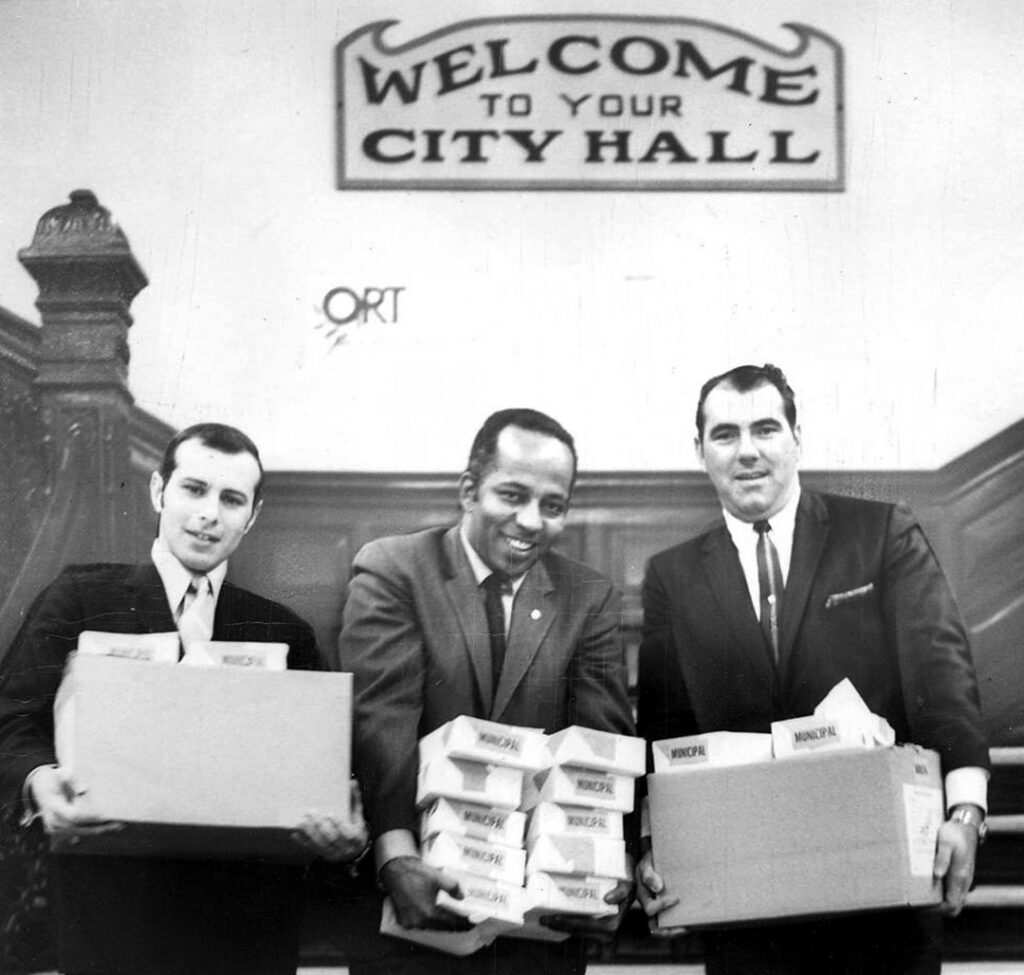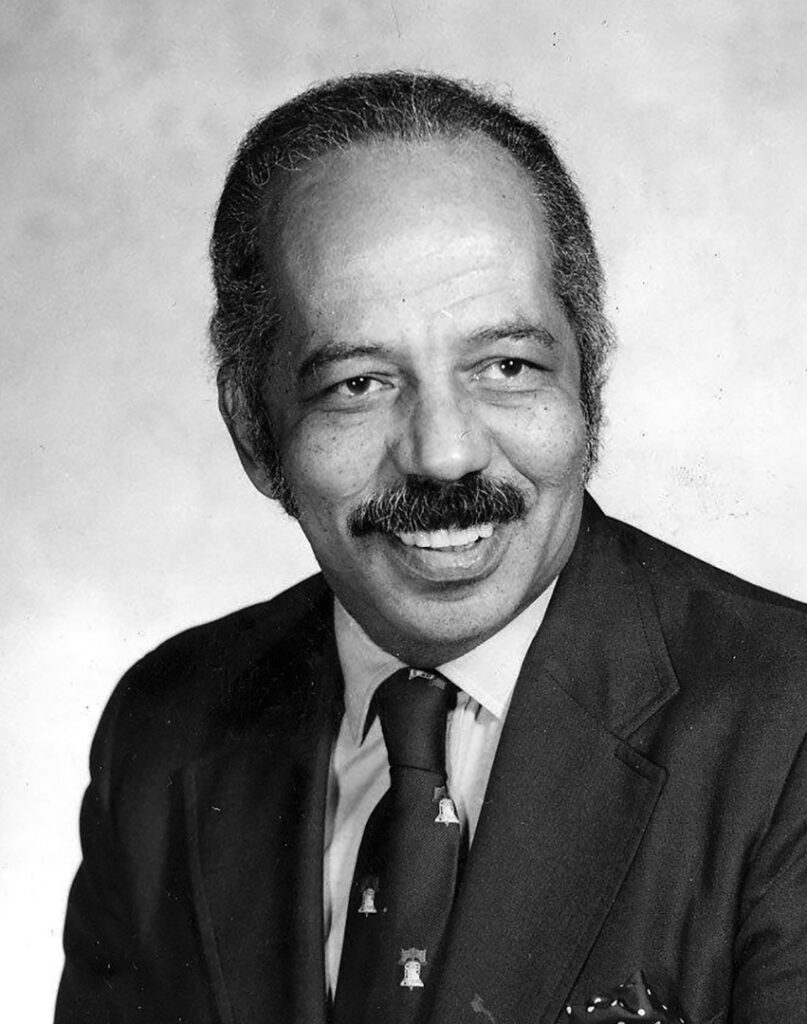
Julian K. Robinson – Civic leader, educator and icon
For a few days in the summer of 1964, Julian Robinson ’52 (Dartmouth), became the first black mayor of Jersey City.
Robinson, a city department head, was appointed by Mayor Thomas Whelan when the mayor had to travel out of state. Robinson was the first black municipal department director in Jersey City, and went on to become a vice president at New Jersey City University (NJCU).
The Jersey Journal documented Robinson’s appointment and after a few hectic days in office as interim mayor, and he quipped, “I wonder why anyone wants the job.”
Making a run
A few more years in city government convinced Robinson that he could make meaningful change as mayor. He said, “I just felt there were things I could do that would save that city millions.”
So he decided to run for the job, and in 1969, he became the first black mayoral candidate of Jersey City.
Though he was unsuccessful in his bid for mayor, he remains a “real icon,” said city attorney Joanne Monahan, who worked with Robinson when she was a student at NJCU.
“He was unquestionably the most intelligent and gifted of all the candidates when he ran for mayor,” Monahan said. “But he was black, and back then that meant he didn’t have a chance.”
Public servant and educator
After his political career, he became dean of student affairs and later a vice president at NJCU, where he was admired and respected.
Kabili Tayari, a former Jersey City Deputy Mayor, said Robinson was “like a father” to him. Tayari who met Robinson as student at New Jersey City University said, “He just saw something in me. I was very outspoken, very involved in the civil rights movement. And he gave me a lot of guidance.”
Robinson dedicated his life to serving just and charitable causes. He began his career with the the Scholarship Service and Fund For Negro Students, and throughout his career served on the board of directors for the Y.M.C.A., United Way, American Red Cross, and chaired Jersey City’s anti-poverty organization. He was a founding member of the Black Alumni of Dartmouth Association (BADA).
As a Pilam brother he broke boundaries
In the late 1940’s and 50s inequity and racial tensions were high. Dartmouth was integrating. There were less than two dozen black students in an undergraduate student body of 2,600, and no black fraternities at Dartmouth. The IFC fought attempts by the University President to remove discriminatory clauses.
Robinson and a few other black students found a welcome home at Pi Lambda Phi, which was primarily Jewish. These brothers had faced institutional discrimination of their own. True to the Creed of Pi Lambda Phi all men were included.
Classmate and co-founder of BADA, Garvey Clarke said, “during that period, we were a closely knit group of African-Americans who stuck together like molasses… and we became members of Pi Lambda Phi.”
Robinson passed into the Chapter Eternal in 2012.





